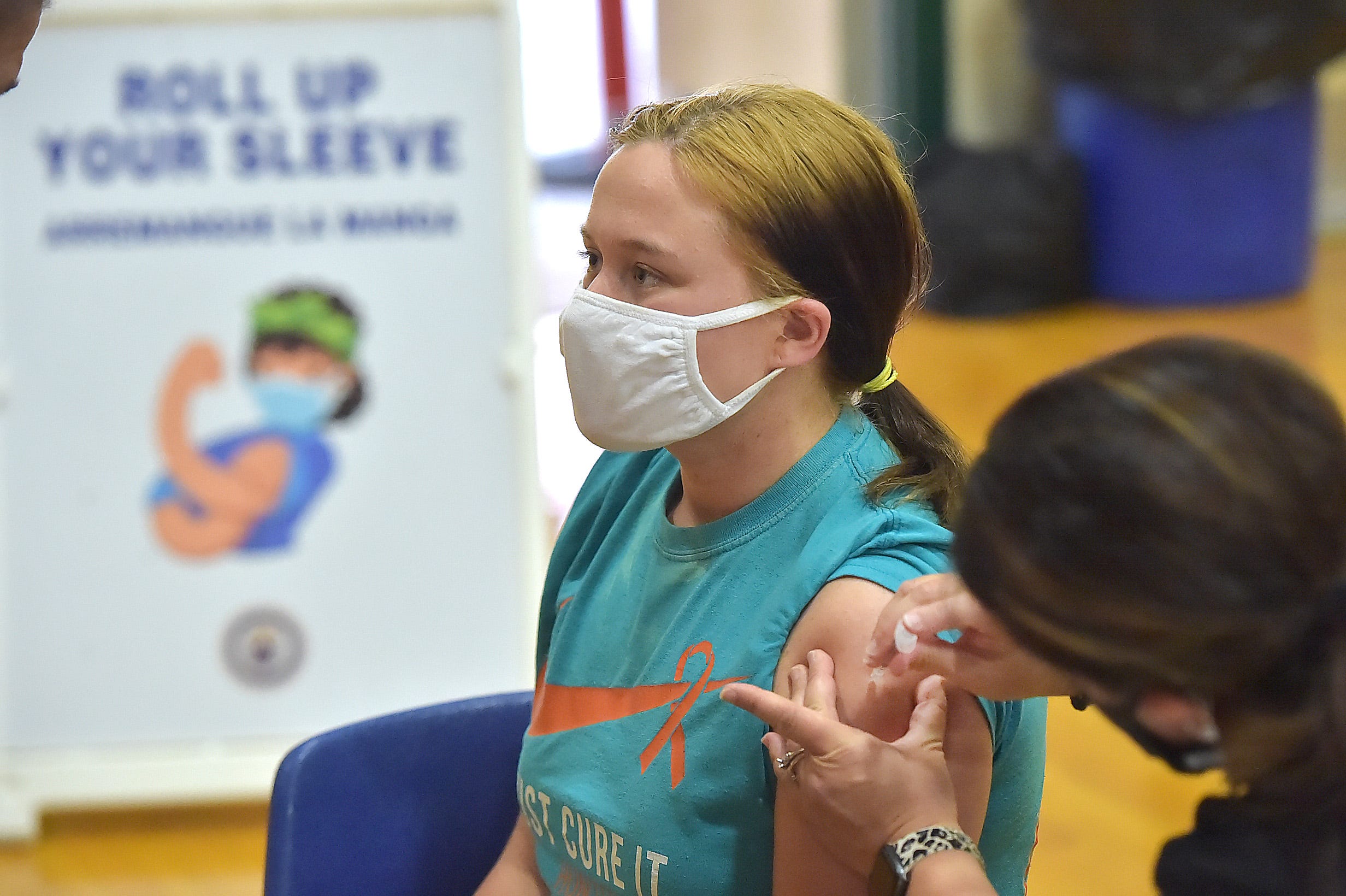
Daily Times/Getty Images
- Kids aged 12 to 15 may be able to get their COVID-19 vaccines as early as next week.
- Young people have robust immune systems, so teens should prepare for side effects.
- If your child wants to return to school, play sports, and see their friends, get ready to book their shot.
- See more stories on Insider's business page.
Younger teens may have access to a coronavirus vaccine soon – and with this expansion in eligibility, parents are likely to have questions.
The Food and Drug Administration is prepared to authorize use of the Pfizer-BioNTech vaccine in 12- to 15-year-olds by early next week, a development first reported by the New York Times. The vaccine was found to be extremely effective in adolescents – possible even more so than in adults.
Insider spoke with pediatric health experts about some of the questions that may be on parents' minds as their teenage kids prepare to get their shots.
When can my child get a COVID-19 vaccine?
Pfizer CEO Albert Bourla previously said he hoped to start getting adolescents vaccinated "before the start of the next school year." In reality, some 12- to 15-year-olds will be able to get their shots even sooner.
Vaccines could be going into new arms as early as next week if the FDA authorizes use of the Pfizer vaccine in adolescents. Former FDA Commissioner Scott Gottlieb told CBS that about five million kids will be able to get the vaccine as soon as it's authorized, and likely another five million would be vaccinated before the school year.
Kids younger than 12 will have to wait until the fall, as Pfizer is on track to announce trial results for them in September.
Are the vaccines for teens the same as the vaccines for adults?
It's safe to assume that kids older than 12 will receive the same dose as adults, Donna Hallas, director of the pediatric nurse practitioner program at New York University College of Nursing, told Insider.
Although Pfizer hasn't released the details of the vaccine trial in adolescents yet, kids who weigh 80 pounds or more typically can handle adult dosing for other medications, Hallas added.
"While children are not small adults - they are different, so that is why it is so important for us to do very targeted safety trials in the younger age groups - our body physiology does fundamentally work the same way," pediatrician Christina Johns told Insider. "I do not anticipate any major difference."
Will teenagers have side effects?
Kids have "tremendously robust immune systems," Dr. Johns told Insider. That's good news for them, but it also means that like other young people, teens should prepare for side effects.
Hallas said teens and children may experience some fatigue and chills after their second shots, just like many of their parents did.
"It wouldn't be unexpected that the children who already have a good immune response might have a mild set of reactions after the second dose," Hallas said. "Plan for that day - have the kid take extra fluids and rest."
I already got vaccinated. Why does my child need it too?
Even if you've already been vaccinated, it's important to make sure your child gets their shot as well. As more of the population gets vaccinated, the coronavirus will have less people to infect, bringing the country closer to herd immunity.
The COVID-19 vaccines are extremely effective at protecting against hospitalizations and deaths. Early study results also suggest that vaccinated people may be less contagious to others, even if they contract a mild case of COVID-19 despite getting their shots.
"If this is building up a huge immune response in teenage children, then hopefully even if they come in contact with people, they're not going to be spreaders - that's what would be really exciting," Hallas said.
Will schools mandate COVID-19 vaccines?
Many schools already have required vaccinations for the chicken pox; measles, mumps, and rubella; meningitis; and more. State law can mandate vaccinations in public and private schools, although most states allow medical and/or religious exemptions.
Already, some colleges and universities have announced requirements for students and staff to be fully vaccinated to return for the fall semester, so it's not unlikely that some primary, middle, and high schools will do the same, Hallas said.
If you want your child to be able to return to school, play sports, and see their friends, it's in your best interest to get them their shots.
Will my child need a booster shot?
We don't know for sure if people will need to get booster shots to maintain COVID-19 immunity, but vaccine manufacturers are looking into it.
Pfizer CEO Bourla said it's likely that people will need booster shots within a year after getting vaccinated. And Moderna is already a step ahead, with clinical trials of a booster shot tailored against the B.1.351 coronavirus variant underway with promising results.
"If variants are as persistent as they've been, people are going to have to get boosters," Hallas said. "It's going to be continuous public health initiatives for a long time."
